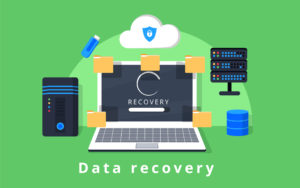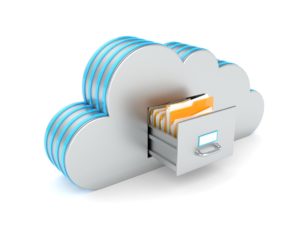Welcome back to the second half of our two-part article about how to completely harden your company against the threats of ransomware. The entire reason why ransomware is so scary is because it is a known cause for complete computer wipes with all your data gone in seconds and you’d better think twice about paying a mysterious criminal who does not have to decrypt your files and will probably delete them anyway.
Rather than leaving yourself vulnerable to these malicious cybercriminals, the best defense is a stupendous set of backups. Last time we talked about creating an individual backup for each machine or group of identical machines, along with the importance of safe cloud storage. Today, let’s pick up right where we left off at point three, your final complete backup stage.
3) Create One Complete Infrastructure and Configurations Backup
Because ransomware sometimes attacks an entire network from a single connected computer, it’s important that you are ready to recover absolutely everything in case you become the victim of a particularly nasty piece of black-hat software. Just like you did with the individual computers, it is possible to take a snapshot of every setting and configuration for your entire network. This file will be pretty big but you only have to keep one or two to be ready for a ransomware attack. This way, even if the malware takes out an entire chunk of your network, you could potentially wipe every device to factory settings and reconfigure in a few hours, once again denying the hacker their opportunity to cause any real damage to your company.
4) Take Content Backups Regularly
Now that you have your infrastructure backups taken care of, you can start worrying about smaller content backups. These can either be updated to the big backups or kept separately to help you keep track of day to day changes. These should be taken even of cloud-stored data to ensure that you’re protected against everything from malware deleting files to human error entering unwanted changes. Regular content backups will ensure that once you factory reset and restore a machine’s configurations and software, you can also restore its local files for the convenience of the employee who works there.
5) Create New Complete Backups for Major Change
After all your backup preparation is done, remember that when you make configuration or infrastructure changes to either the network or an individual machine, these changes need to be updated to your collection of comprehensive backups or your restoration may bring back an older, less useful configuration. Put this responsibility in the hands of your IT technicians who will be the ones making these changes in the first place. This will ensure that your ability to immediately recover from ransomware is always up to date with exactly the data you need.
6) Run Ransomware Drills
Finally, never assume that an emergency plan is in place until you have proven it. While you may not want to wipe your entire system and re-install it, at least test the solution on a few computers or a test section of the network to ensure that everything is in good working order. The last thing you want to happen right after a ransomware attack is to discover that your backups have either corrupted or don’t integrate correctly. Check your backups and run a new drill about every six months to make sure you’re still ready.
This solution may sound complex but here at SystemsNet, we’re experts on malware defense and comprehensive backup plans. For more helpful information on how to defend yourself from ransomware or to plan your perfect backup solution, contact us today!



